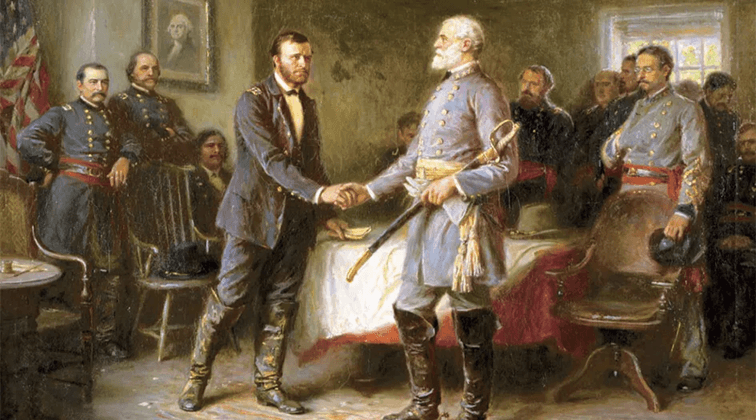Nietzsche – The Diabolical Saint of Acceptance: Explaining Why He Appeals to Both Right and Left

Philosophers have a choice between originality and truth. When it comes to the human condition nearly every true thing that can be said about it has probably already been stated somewhere. If a philosopher wants to be strikingly new and original it will be necessary to be wrong. As Aristotle stated, there is just one way to hit a target and a million ways to miss it. Nietzsche was very good at being interestingly wrong.
Of course, good liars know that for their lies to be convincing there must be a good admixture of truth, partly because lies can be harder to remember, especially if different lies are told to different people, and because the embellishment with truth lends credibility.
Friedrich Nietzsche says many true things and many outlandishly immoral and false things. There is clearly a religious and philosophical earnestness underlying many of the things he says, despite a superficial jokey cynicism. But then there are also contradictory strains in his writing. Reading Nietzsche inevitably raises the question – what is this person up to?
He attacks “slave” morality, what any sane and decent person would just call “morality,” and advocates “master” morality – which includes the attitude that the “strong” have for the “weak,” namely contempt rather than hatred. But the exact details of master morality remain largely unelaborated and do not seem appealing. At times mastery morality even seems fairly repulsive to him. So readers are left not knowing what to think.
Nietzsche attacks only the crudest Sunday School versions of Christianity; to that extent, it’s a strawman. Admittedly, this crudeness is reflected in some official Roman Catholic dogma such as the assertion that once consigned to hell, hell is forever. Dostoevsky’s character Ivan in The Brothers Karamazov at least criticizes a very sophisticated version of Christianity and attacks it well, despite Dostoevsky’s pro-Christian sentiments.
In my first cover to cover reading of Nietzsche’s The Genealogy of Morals several years ago, I believe I found the problem and an explanation for some of the contradictions and contradictory tendencies in Nietzsche.
To understand what is going wrong with Nietzsche’s thought it is necessary to understand Ken Wilber’s argument that the proper existential stance requires both wisdom and compassion, symbolized by the allegory of Plato’s Cave. In leaving the cave, the philosopher, the lover of wisdom, is searching for wisdom, the Good, and happiness. Happiness requires wisdom because we have to learn the difference between what is truly desirable and what is not. Part of our destiny is to develop. Misery and suffering will lead to wanting to overcome the problems and limitations that cause these things. The quest to understand the Good better is everyone’s life long goal, whether they know it or not.
So, if you care about yourself and other people, you strive to develop and wish them to do so as well. To wish anyone to stop developing at any age is to wish them ill. The interests and limitations of a ten year old are fine when he is ten, but ridiculous when he is fifteen. The urge to develop can be seen as of a piece with the development of the universe, from the Big Bang, to stars, to planets, to solar systems, to life on Earth, and to the development of more and more complex life forms.
But a proper existential stance also requires compassion. Compassion is acceptance; unconditional love symbolized by returning to the cave out of concern for the philosopher’s fellow prisoners.
Wilber calls the quest for development and improvement “Eros,” the love man has for God, and equates it with a more masculine-style conditional love, and unconditional compassionate love he calls “Agape,” the love God has for man, which he regards as being more nurturing and feminine in nature. He argues that both Eros and Agape are necessary for either one to exist properly and thus that each individual should embody both of these tendencies. At the very least the proper raising of a child would entail a father demonstrating an Eros form of love, pushing the child to develop and setting standards, and a mother who loved her child unconditionally no matter what wrongs he might commit, loving all her children equally.
The quest for development can be taken too far. Puritanism and Gnosticism strive for salvation, for their perception of the Good, and regard the body and physical reality as evil; as a nasty hindrance barring our way to happiness. This leads to all sorts of intolerance and hatred.
The urge for compassion and acceptance can be overdone as well. Fertility Cults unconditionally accept nature just as it is. Culture can come to be seen as life-denying. To strive to develop is to reject reality as you find it. However, since failing to develop is failing to live well, this excessive compassion in isolation is bad.
Idiot compassion, as Wilber calls it, involves accepting everything with no urge to develop. A parent gives his kids candy and TV because “it’s what makes them happy.” One spouse allows the other to beat him up he loves her. Compassion without wisdom is not compassionate and caring at all. Instead it hurts people.
The traditional two parent family had the tough love Dad making you do your homework and piano practice, sending you to bed with no supper, and the unconditionally loving mother sneaking you something to eat late at night.
Genuine love involves complete acceptance of your children no matter what. Even if they become ax murderers, the parent will visit them in prison. It also involves pushing them to develop themselves and to develop their talents rather than becoming fat and useless to themselves and to other people.
If someone is being beaten up by her spouse, she should prosecute, and make sure there are consequences for wrongdoer’s actions; but the beater should also be forgiven. Forgiveness involves not hating people, but wise compassion does not involve being treated as a doormat. A professor might forgive students who plagiarize, but he should also prosecute them and get them written up in the Dean’s office and fail them for the assignment and get them thrown out of class at times.
Nietzsche goes wrong in his philosophy by being half right. A major problem and source of error involves mistaking a partial truth for the whole truth. It is often difficult to extricate ourselves from this error because the thing that is being emphasized is true. The person knows he has hold of a truth and will not relinquish it. This is Nietzsche’s problem. He knows that compassion and acceptance are good and he is willing to promote them to the utter demise of compassion and acceptance!
Nietzsche says there is no heaven, no transcendence. There is nothing higher to aim for. What is real is here on Earth and what we see is nature. Thus, there is no way to exit Plato’s Cave and nowhere to shoot for. This forestalls the possibility of Eros.
The reader might point out that there are other parts of Nietzsche’s philosophy where he celebrates culture heroes, Napoleon and Jesus, though not the latter’s followers. Since there are contradictions in Nietzsche’s thought it is possible to argue either side and to seem right – contradictions, if permitted, can be used to prove anything. For now, however, the task is to explain how it is that both the Left and the Right can end up using Nietzsche for their own purposes and to find something in his writing of which they approve.
Eternal Recurrence
Nietzsche wants to say yes to life. His test for whether someone is saying yes to life is whether he would assent to an imaginary scenario. Do you assent, in principle, to living the same life you have just lived over and over again for all eternity without changing anything at all. If the answer is “yes,” then you are a saint of acceptance. Total acceptance means saying yes to life in all its aspects and mistakes.
It should be pointed out that Nietzsche definitely did not believe in actual reincarnation. This idea of eternal recurrence is just a thought experiment to determine a person’s fundamental attitude to life. The question is how someone reacts to the mere thought of this situation.
This is where the partial truth enters. It can sometimes seem nice to fantasize about editing our lives; taking out all the boring bits, and the suffering and the times we acted badly. But saying yes to life is accepting it just as it is.
However, what the test of eternal recurrence misses is embracing development; the striving part. Living the same life over and over would be a kind of hell because a person would never get to develop. That goes against reality.
Suffering is fine, as far as it goes. Suffering is a motive to change, to grow and develop. New parents must develop new capacities for patience or end up abandoning or murdering their new baby. However, the kind of suffering Nietzsche is recommending – never learning from your mistakes and thus never developing is hell.
Developing does not mean the end of suffering. One solves the old problems and gets new ones – problems that are developmentally appropriate. At one age, learning how to suck on your big toe might be your big ambition. At another age what career to pursue might concern you. Later on there might be mid-life crisis issues arising. Developing does not mean rejecting life, but attempting to cope with the ever-changing demands life throws at you and learning from them.
Acceptance is a virtue. We should accept two year olds, for all their limitations. They cannot read, or write; they may not even be toilet trained, but they may still be a perfect little two year old. We are all at some level of development and are perfect in this way too. But if you love that two year old, you do not want to condemn them to the same mistakes, the same interests, the same level of cognitive development for all eternity. That would be hell. We are all that two year old.
By trying to say yes to life, Nietzsche says no to life, because part of life is developing. If it is all just nature, there is nowhere to develop to.
What does Nietzsche see in nature? No morality. The strong eat the weak. It is brutal, but it is the way it is. For Nietzsche, morality says no to life. Morality tries to uplift the weak, it says that lending a helping hand is the moral thing to do, etc. etc. Nietzsche argues that morality says no to life, to nature. Any attempt to change these basic facts of life is to say no. We must say yes, and saying yes means accepting everything. Nature is on the side of the strong. Which side are you on?
For Nietzsche, morality must be rejected because it involves development and is necessarily a critique of what comes naturally.
Why do some on the left love him? Because the left tend to emphasize compassion e.g., bleeding heart liberals. The left intuit the nonjudgmental acceptance at the heart of this. Unconditional love.
Why do some more on the right love him? The strong eat the weak. Independence and manly virtue. No mercy. Kill or be killed. In accepting unadulterated nature, there is no place for morality.
There is a certain type of smart, young person who thinks that accepting total nihilism is manly and admirable. Any deviation from unrelieved awfulness is mere escapism and fantasy. Ivan Pavlov wrote: “There are weak people over whom religion has power. The strong ones – yes, the strong ones – can become thorough rationalists, relying only upon knowledge, but the weak ones are unable to do this.”[1] This quotation is on point because it is conceptually impossible to avoid the nihilistic implications of atheism if a person has any desire to be consistent. To the extent that life is regarded as meaningful and morality real, a notion of the Divine and sacred are necessary.
Evidence of Nietzsche’s acknowledgement of the horror of what he is arguing and his willingness to accept this horror can be seen in his comments about Indian “untouchables;” the lowest members of the Indian caste system. They can wear only used clothing. They may not wash in fresh water because they would pollute it. They may drink only from the water that fills where the muddy hoof print of an animal like an ox has fallen. Nietzsche pretends to delight in this, after going into graphic disgusting detail.
The left like it – cultural relativism. “This is the Indian way, we must not judge.” Unconditional acceptance.
The right like it – “there is a natural hierarchy and to hell with all this faux egalitarianism. Some people deserve what they get. The untouchables are the weak and we are the mighty.”
Nature, Nietzsche thinks, says yes to “master” morality while Christian charity is keeping mankind down. Nietzsche claims that Kant celebrates mediocrity and punctuality as though that it is the peak of human achievement. If mankind is to achieve anything it must leave the heaving masses behind and the true genius must rise above the petty self-protective whining of hoi polloi. The übermensch will rise to the top. Perhaps, but there is nothing very natural or accepting about cultural achievement.
We can agree with Callicles in Plato’s dialogue, Gorgias, that perhaps many of the weak are drawn to protection under the law for the wrong reasons, just as the weak might be drawn to Christian charity. The weak hope that justice under the law might mean they get their fair share. The weak know that if there is to be charity, then they will be the beneficiaries. Their motives are often selfish, not moral. Much of the time their apparent love of morality is just self-interest. This may well be true. But their selfish motives do not mean that kindness is wrong. I might give you a gift hoping to get something in return, but that does not make gift-giving per se immoral.
The saint of acceptance tries to accept everything as a consequence of unconditional love. But when he tries to accept Nature, he finds endless death and no mercy. Better and worse. Strong and weak. Out of love and compassion he will send the weak to the gas chambers and deny their pleas for help because in not accepting their fate, the weak are rejecting LIFE. They must be shown the light. Those who seek to protect the weak are the naysayers.
One senses, at times, Nietzsche’s reluctance to keep following his line of thought. He is going to overcome his disgust at brutality and domination in a heroic act of acceptance. It is his exaggerated idiot compassion that leads him to embrace ruthless domination and name Napoleon as a hero! What a mess. He’s the biggest idealist out there. He’s Kirillov in The Devils.
Kirillov, like Nietzsche, wants to be the Christ. Or rather, the anti-Christ since the Christ position has been filled already. Both Kirillov and Nietzsche are going to save us from salvation, unredeem redemption and promise us eternal death.
Kirillov points out that the major draw card of religions is the promise of eternal life. No billionaire can offer such a thing. Kirillov hopes to undermine this thing that only religions offer by demonstrating the overcoming of the fear of death through his suicide. If death is not to be feared, then religion becomes that much less attractive. Kirillov is in weird competition with Christ. Nietzsche is too and in fact is quite indignant about his inferior status. It seems likely that now, at least for some people, Nietzsche is indeed to be preferred to Christ.
Nietzsche can be compared to a naïve well-meaning undergraduate moral relativist. Relativism is taught to school children to teach them to be tolerant. Students will at times attempt to tolerate some of the greatest horrors ever perpetrated by mankind in order to be good people. They too, like Nietzsche, strive to be saints of acceptance and they do so by holding their noses and attempting to embrace slavery and the Holocaust.
It is, however, evil to tolerate evil. Apparently some of the children’s teachers who promulgated this rot actually promote this kind of thinking.
Nietzsche can at times be an excellent psychologist and aphorist. His claim that each person’s philosophy is a kind of self-confession is spot on. He hated Kant and Mill and their version of morality. I dislike them too. Why did they imagine that they could somehow improve on Christian morality? Why was their moral theorizing necessary? What did it add? It was of a piece with the Enlightenment fascination with theory rather than tradition and intuition and of course, revelation. Nietzsche was correct in being unimpressed with some nineteenth century notions of morality but went on to attack Christian morality too as though he had something better to offer, just as Karl Marx rejected Christianity and then promoted compulsory charity and compassion, a grotesque distortion of the Christian message. Nietzsche tries to tear down traditional morality and then writes an I.O.U. that only the Ubermensch can redeem. Into the vacuum, Nietzsche’s left wing and right wing admirers climb.
Notes
[1] https://ffrf.org/component/k2/item/14872-ivan-pavlov




